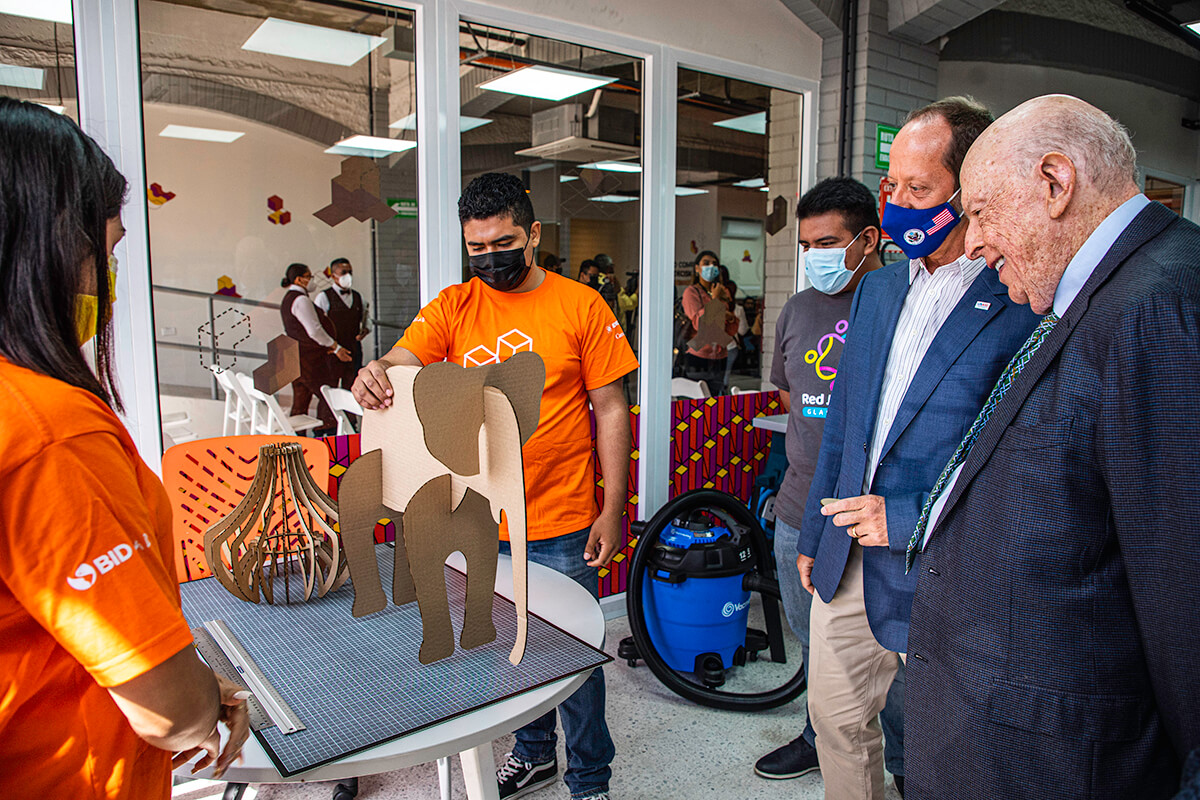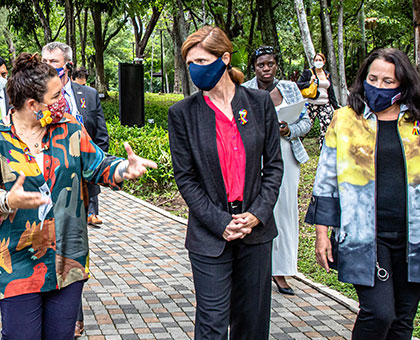New York migrant students share their perspectives at Glasswing’s first-ever salon
Published on July 11, 2024 by Glasswing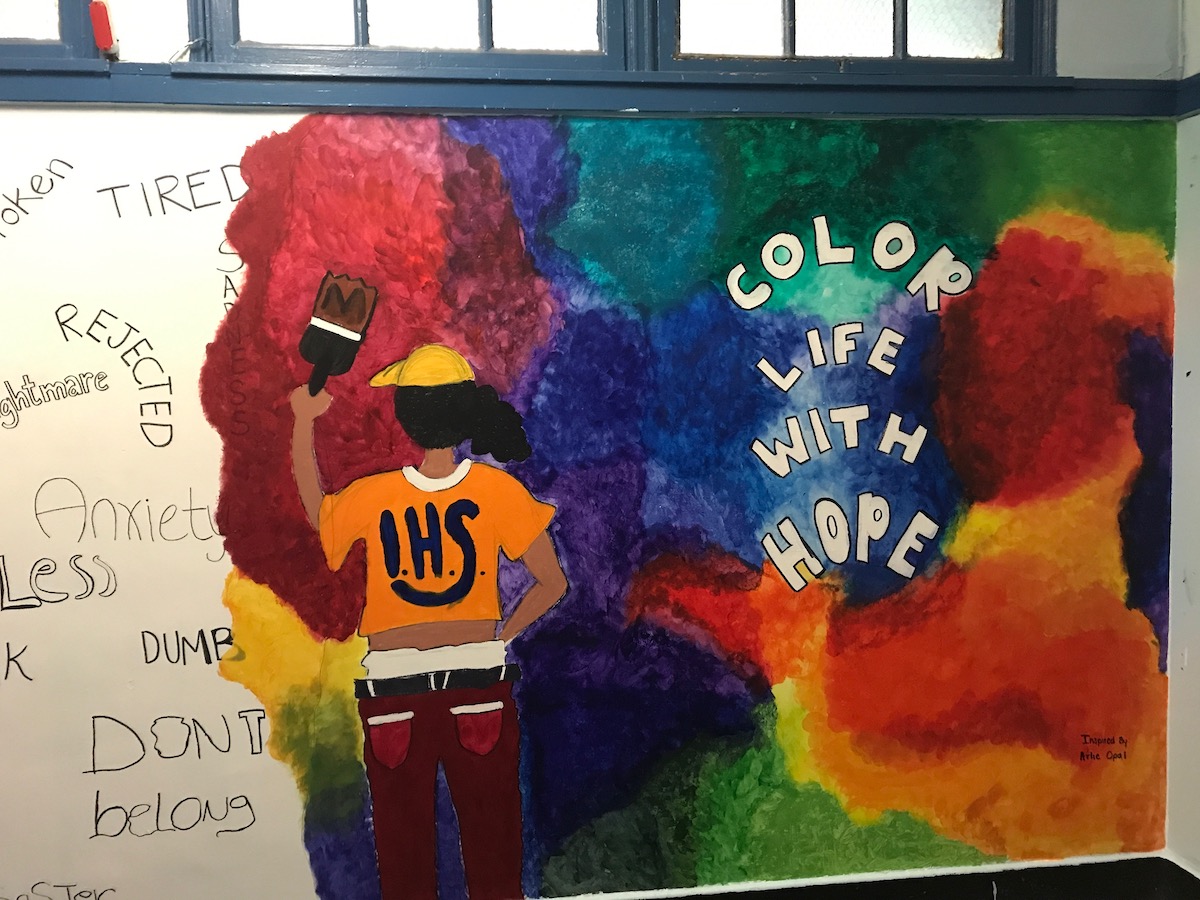
All students deserve a fulfilling education and hope for the future. Getting there starts with understanding what they need.
And understanding what they need starts with listening to them.
In the spring, Glasswing New York held our first-ever “salon” event. Thirty motivated individuals, including students and members of the educational community, gathered to share their perspectives and listen to others, exploring topics ranging from the challenges they faced to the resources that would be most useful to them.
All student participants were immigrant youth who attend New York City public schools. They came to the US from Latin America and the Caribbean.
More than 200,000 migrants have arrived in New York City since the spring of 2022. Each year since then, the number of migrant families in city shelters has increased. In May 2024, there were 65,600 shelter residents seeking asylum. According to the NYC Comptroller’s office, there were 37,000 students in temporary housing enrolled in the city’s public schools.
The stories shared at the salon hinted at the countless untold stories behind those numbers. Students described the hardships of pursuing an education in a new language and country. Afterward, they expressed their enthusiasm for having a platform where they could speak and be heard. Given the positive responses from students and other attendees, Glasswing New York is planning to host a second salon in the fall of 2024.
Why we need spaces for listening
To reach the right solutions, it’s crucial to listen to people’s lived experiences.
Itzel’s story is an example of this. The following is a composite of several students’ experiences; Itzel is not a real student. We are combining experiences to convey lived circumstances while protecting individual students’ identities.
During a small-group discussion, Itzel shares that she arrived in New York speaking two Indigenous languages. Her new neighbors all speak Spanish, and she quickly learns that in order to survive in her new country, she will need to learn Spanish too. Learning Spanish will mean knowing where to get food, clothes, medical care, and work opportunities.
Itzel is in school full time, and she works 40 hours a week to support herself and send money to her family. She doesn’t have time to learn two new languages. She is focused on survival.
So she doesn’t learn English.
Without knowing her story, it may seem that what she needs is more academic support. Perhaps the staff at her new school sees her struggling and decides to divert more of its limited resources toward English-language learning materials.
But that doesn’t end up helping Itzel. She doesn’t learn English because she doesn’t have the bandwidth to. Meanwhile, her mental health suffers. She isn’t permitted to participate in extracurricular activities until her grades improve, which means few opportunities to socialize and form a community. She feels even more isolated in her new home.
When we listen to Itzel, we learn what she really needs. We learn how to collaborate with her and those around her. We help co-create better solutions to meet the unique challenges she is facing.
The challenges faced
At the salon, we heard many stories that attested to the importance of understanding young people’s distinctive needs. The salon featured a panel moderated by Glasswing co-founder Celina de Sola, followed by five smaller group discussions.
Below are some of the challenges that came up during those conversations.
Difficult living conditions
Many students struggle with housing and food insecurity. About a quarter of the students Glasswing New York works with live in hotels and shelters. They lack basic necessities and enough nutritious food. These unstable living conditions further impact their ability to concentrate on their studies.
As Itzel’s story underscores, learning becomes secondary to survival.
Balancing school and work
Many students juggle full-time school and demanding jobs. Some work at restaurants; some clean houses. The resulting stress makes it difficult for them to focus on their studies.
While the money they earn helps to support them in New York, a significant portion is often sent back to their families in their home countries. The financial pressure of their circumstances makes it hard to stay motivated in school, as students might feel that they could better support their families by dropping out and working more hours.
Two students at the salon emphasized the need for scholarships and living stipends. These measures, they explained, would help alleviate the financial burdens of supporting themselves and their families.
English learning support
One student described her concerns that she wouldn’t be able to pursue a degree in nursing. Her perceived lack of English proficiency might limit her chances of getting into college.
In New York City, high school graduation hinges on passing the Regents exam in English. Beyond this, students must become fluent in English to navigate college applications and the workforce.
Limited access to technology
Students have limited access to laptops and other technologies that are necessary for school. School-provided laptops often break or fail to connect to the internet.
One student shared that her grandmother had to send her a computer from Guatemala.
Need for legal assistance
Students and families need legal assistance to help put them on a path toward legal status. This would allow them to remain in school without the added stress of resolving issues with their immigration status.
Partnerships for change
We are grateful to our sponsor and host East Rock Capital for making the salon possible, and for creating opportunities to amplify students’ voices.
Based on the insights shared at the salon, the Glasswing New York team is developing further key partnerships to meet students’ needs.
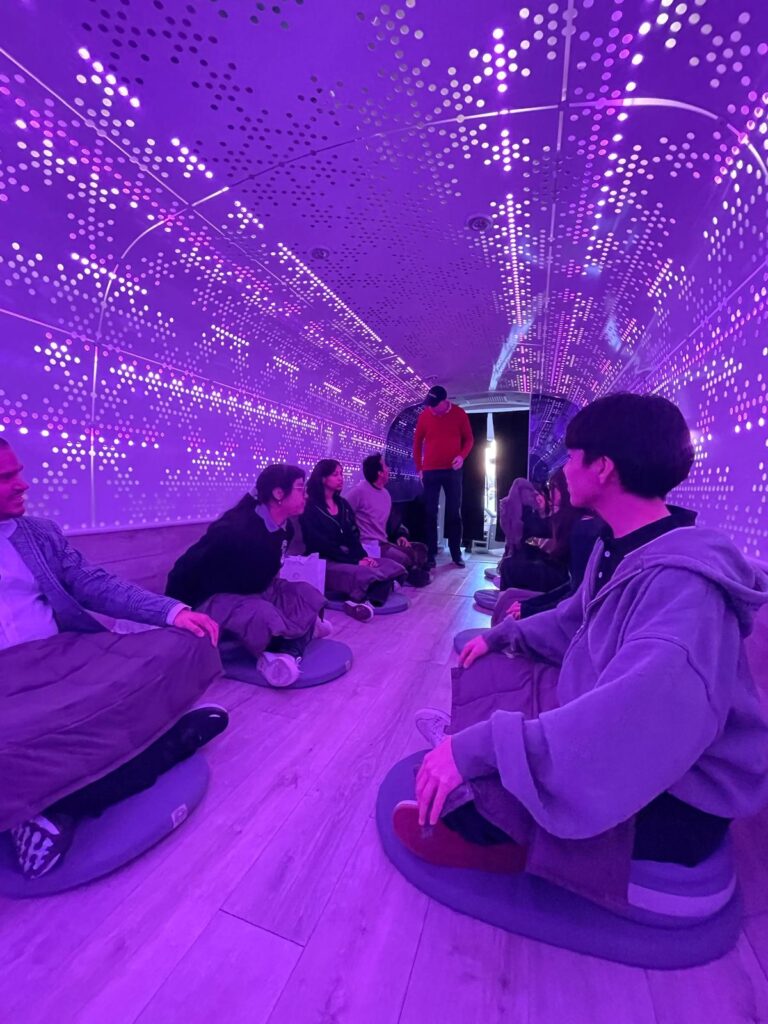
- To increase access to technology, the digital wellness company Noom has generously donated 100 laptops to support the students we work with.
- In partnership with the nonprofit organization Project Glimmer, we are recruiting female-identifying students who are interested in the beauty, technology, and finance spaces to participate in entrepreneurship and leadership programs.
- Together with BEtime, and with the support of Morgan Stanley, we have started providing trauma-informed meditation sessions to students, school staff, and parents, including mindfulness practice on a “Meditation Bus.”
- With the Hard Rock Hotel, we celebrated Glasswing New York students at an end-of-year party in June. Model and entrepreneur Valentina Ferrer and global artist J Balvin joined in the celebration. Hard Rock’s Joseph Mongeluzzi was generous in arranging the event and lending his support.
- Teen volunteers from the Collegiate School held a clothing drive for boys and young men and organized a Saturday afternoon “shopping” event for families, with food, clothing and book giveaways, and games.
- A group of New York–based women philanthropists mobilized to provide cash cards and arrange a special-occasion clothing drive for graduation, prom, and other end-of-year events.
- With the support of volunteers, we began holding monthly workshops educating parents and caregivers on the immigration process.
- We hold in-person language-exchange programs with volunteers from Morgan Stanley. We are also exploring language-exchange programs with high school volunteers for the fall of 2024. (If your company or high school may be interested in participating, please reach out to Bridget Kane, [email protected].)
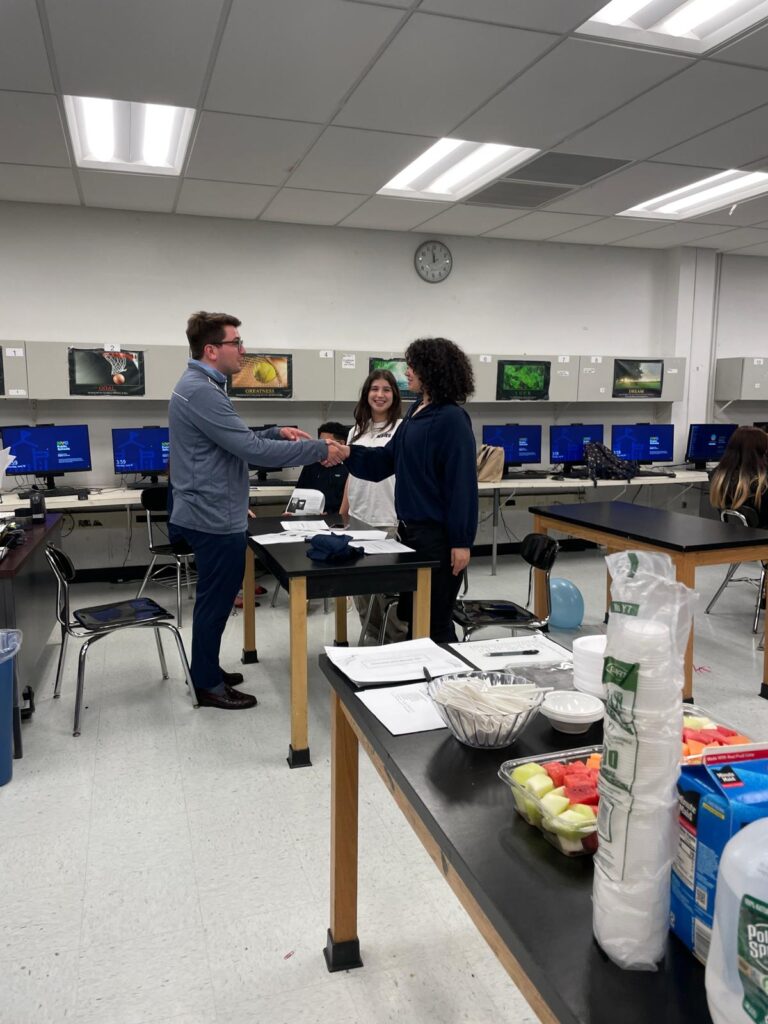
These partnerships build on other established Glasswing New York programs, including internships, reading clubs, peer mentoring, and school-improvement projects.
Please join us in supporting migrant youth
We would like to thank the students, faculty, and parents who participated in the salon for generously sharing their stories and perspectives.
Are you interested in supporting recently arrived migrant youth? Your donation will help young people like Isabel, a high school student who is thinking about dropping out of school so she can work. By working full time, she would be able to afford to send her three brothers in Guatemala to school.
No young person should have to give up their potential. Learning should never be secondary to survival.
Your support builds hope and opportunities.

